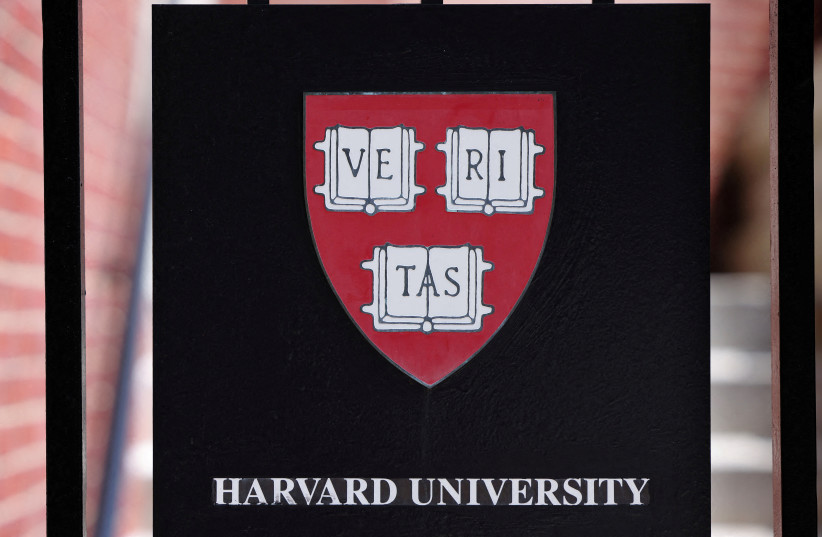Harvard silent after court condemns assault on Israeli student - opinion
Court ruled assaulting a Jewish Israeli student at Harvard is criminal, not activism. Harvard remains silent, despite the verdict and its report on antisemitism.

The ongoing conflicts between US President Donald Trump’s administration and Harvard University are generating national headlines. But on April 27, the Suffolk County (Mass.) District Court sent a critical message that has received far less press attention: Physically assaulting a Jewish Israeli student on a university campus is not activism; it is criminal behavior.
Harvard graduate students Ibrahim Bharmal and Elom Tettey-Tamaklo – who surrounded and physically restricted fellow student Yoav Segev from accessing a public space on campus due to his Jewish Israeli identity during a protest at the Harvard Business School (HBS) in October 2023 – were ordered to complete 80 hours of imposed community service, attend anger management training, and participate in a professional negotiation course.
These were not symbolic conditions. They were imposed in direct response to the defendants’ conduct and lack of remorse.
Massachusetts made it explicitly clear: The Jewish Israeli student did nothing wrong. The prosecutor’s statement affirms this. Still, the defendants have never taken responsibility, apologized, or expressed regret. They have only spun the narrative in the press and denied wrongdoing despite video evidence showing them preventing the Jewish student from accessing his public campus space while screaming “shame!” in his face.
Harvard University, where the incident occurred, has remained silent. No formal disciplinary response, institutional acknowledgment, or apology. The court has spoken; Harvard has not.

This silence is no longer tenable
One day after the court’s ruling, Harvard’s Presidential Task Force on Combating Antisemitism and Anti-Israeli Bias released its final report, confirming what Jewish and Israeli students have said for months: They feel alienated, unsafe, and unsupported. The report details systemic failures from fragmented complaint procedures to a culture that tolerates and even legitimizes antisemitism under the false banner of political expression.The HBS case isn’t an isolated moment; it’s a case study in what Harvard’s own report warns against: a campus environment where targeted harassment goes unchallenged and where the university refuses to act in contravention of both the law and its own standards of comportment.
It is absolutely clear to everyone that: A Jewish student was physically confronted by fellow Harvard students, in public, on video.
The aggressors denied accountability, refused to cooperate with authorities, and launched a media campaign casting themselves as victims. The court intervened with meaningful consequences.
Harvard did nothing.
This is more than a missed opportunity for Harvard. It’s a message to students that when harm is done, the university may choose neutrality over responsibility. Remorse is optional, and accountability is flexible, especially if you know how to spin your story.
Harvard is not just meant to be an educational institution; it should be a moral institution. Its mission is not simply to produce high-achieving graduates but to shape ethical leaders. That requires modeling integrity, teaching that actions have consequences, not avoiding them.
If Harvard is serious about the conclusions of its antisemitism report, then the path forward starts here. The court required service, education, and anger management. Harvard can and should go further.
It can and should require students who cause harm to study the history and impact of antisemitism, engage with affected communities, and reflect in writing on what they’ve learned and how they plan to move forward with accountability.
It can and should provide clear, campus-wide guidelines on the boundaries between protest and harassment, ensuring that activism never becomes a shield for intimidation.
And most importantly, it can and should recommit to its core mission: teaching. That includes teaching empathy, responsibility, and the ability to own one’s actions, not avoid them.
If Harvard continues to do nothing, it sends a message far louder than any chant: Silencing, assaulting, and dehumanizing a fellow student is not only tolerated but institutionally survivable. The court has spoken. What about you, Harvard?
The writer is the national senior director of academic action, leading the SHIELD Support Center for the Israeli-American Council, and is a Boston-area resident.






